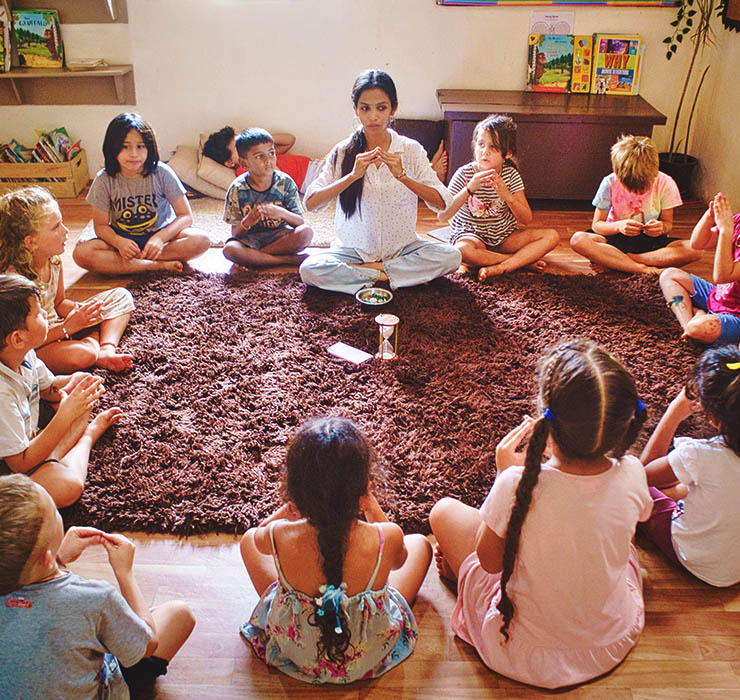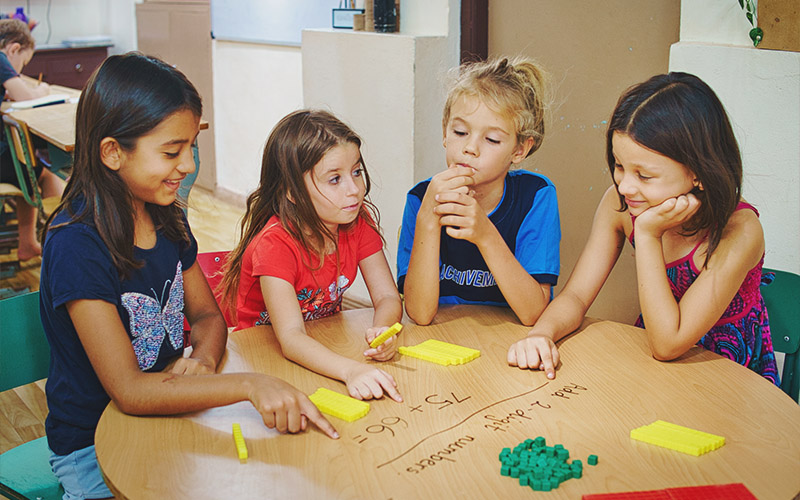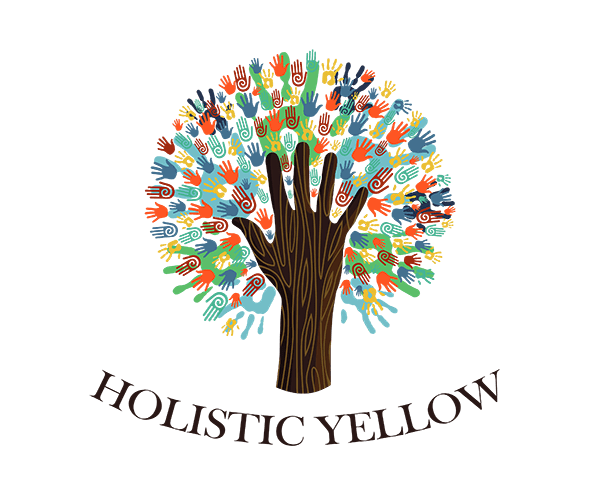Grade-P1
As a school, we follow a unique approach to education that blends Reggio Emilia, Waldorf, and Montessori methodologies. We believe that learners at this stage are in a transitional phase, and require a supportive and nurturing environment to build familiarity with concepts explored in preschool. Our experienced teachers prioritize the recall value of students by emphasizing past learning experiences, while also encouraging self-directed learning. We provide students with the freedom to explore their interests and passions in a safe and nurturing environment. This approach equips our students with the skills they need to develop critical thinking, problem-solving abilities, and a lifelong love of learning.

English
In Grade 1, students learn English through storytelling and writing sentences, while working on their handwriting. Speaking, listening, and reading skills are emphasized through classroom discussions. Students also develop phonics skills by reading one and two-syllable words using the Read Write Inc. scheme, starting from the Reception age. The overall goal is to build a strong foundation for academic success and a love for language and communication.
Math
With math, the students are taught with the mastery approach and the White Rose scheme to teach students a deep understanding of math concepts through concrete, pictorial representation, and abstract thinking. Lessons feature multiple models to engage and extend thinking, covering counting across 100, addition, subtraction, multiplication, division, measurement, and 2D/3D shapes. We aim to foster problem-solving skills for real-world scenarios and inspire a lifelong love for math.
Science
The Science curriculum for Grade 1 is centred on enabling students to understand their environment, both natural and living. They learn to plan, reflect, and interpret results through exploring topics like the natural world, the animal kingdom, the human body, and the changing seasons. To support the learning process, our lessons use a wide variety of resources, whether it be practical resources from our science store, an extensive outdoor learning area, or various forms of media. By engaging with hands-on experiences, students develop critical thinking and problem-solving skills, laying a foundation for future scientific inquiry.
Thematic
Under the thematic, students learn about history and geography. By engaging students in a hands-on, cross-curricular approach, they are encouraged to develop an awareness of the past and its relevance to the world today. Students are taught this subject through multi-sensory resources such as artifacts, trips, special topic days, and hot seat characters from the past, to make the learning process stimulating and immersive. In addition, learners are introduced to the use of maps, atlases, and globes in a fun way, which helps them to understand the physical features of the world.

Grade-P2
Moving onto the next stage, learners are now getting warmed up to working more independently, developing their language and speech abilities, beginning to find a balance and their curious minds creating wings to fly.
English
In English, Grade 2 students aim to develop sight reading skills and understand grammar concepts such as nouns, adjectives, tenses, and more. They learn to write for different purposes, including stories and poetry. Strong reading, writing, speaking, and listening skills are emphasized through drama, discussions, and oral presentations. Spelling, handwriting, and grammar are integrated into daily teaching, and students work in both ability-level and mixed-ability groups. In addition, students are encouraged to take books home and use the well-stocked library, with a dedicated library session each week. Special events bring English lessons to life, such as Roald Dahl day.
Math
In Grade 2 math, students will develop a strong foundation in addition and subtraction, including adding two-digit numbers with ones and tens. They will also learn multiplication and division facts and how they relate to addition and subtraction. Along with this, they will explore fractions such as 1/3, 1/4, 1/2, and 3/4, and how to apply their understanding in real-world contexts, like dividing pizza or sharing objects equally. In addition to this, students will be introduced to 2-D and 3-D shapes and their properties, they will also learn about different types of measurements, such as weight, capacity, and length, by interpreting data presented in various graphical formats, such as pictograms, bar graphs, and tally charts. They will learn to apply these concepts in real-world situations and problem-solving scenarios, which will prepare them for further learning and exploration in math.
Science
At this stage, the continuation of science learning in grade 2, building upon the topics and skills learned in year 1, where students will learn about living things and their environment, weather, changing materials, Electricity, and the universe. Students will learn to work confidently- closely observing details and recording their observations. In addition to learning about specific topics in science, students in year 2 will continue to develop their scientific skills and knowledge through hands-on exploration and experimentation. They will also learn to communicate their findings through oral and written reports, charts, and graphs.
Thematic
Thematic at this stage will initiate learning different facets of the curriculum, the approach in grade 2 allows for the exploration of topics such as Everest, the blue Abyss, and Dragons through an interdisciplinary lens. Students will be able to connect various subjects such as geography, history, and science to gain a deeper understanding of the physical and cultural aspects of these themes. For example, when learning about Everest, students can learn about the geography of the Himalayas, the history of mountaineering, the physiological effects of high-altitude climbing, and the cultural significance of the Sherpa people. This approach to learning allows for a more engaging and well-rounded educational experience for students.
